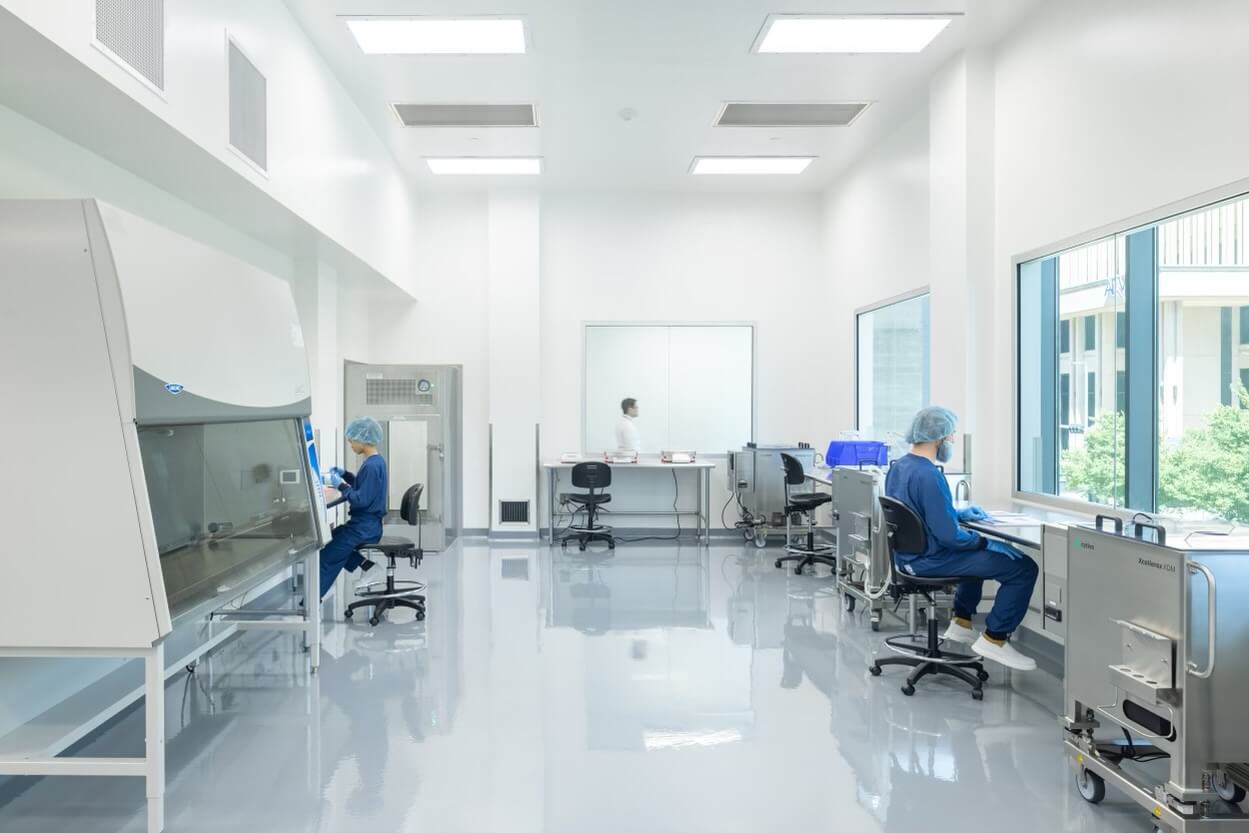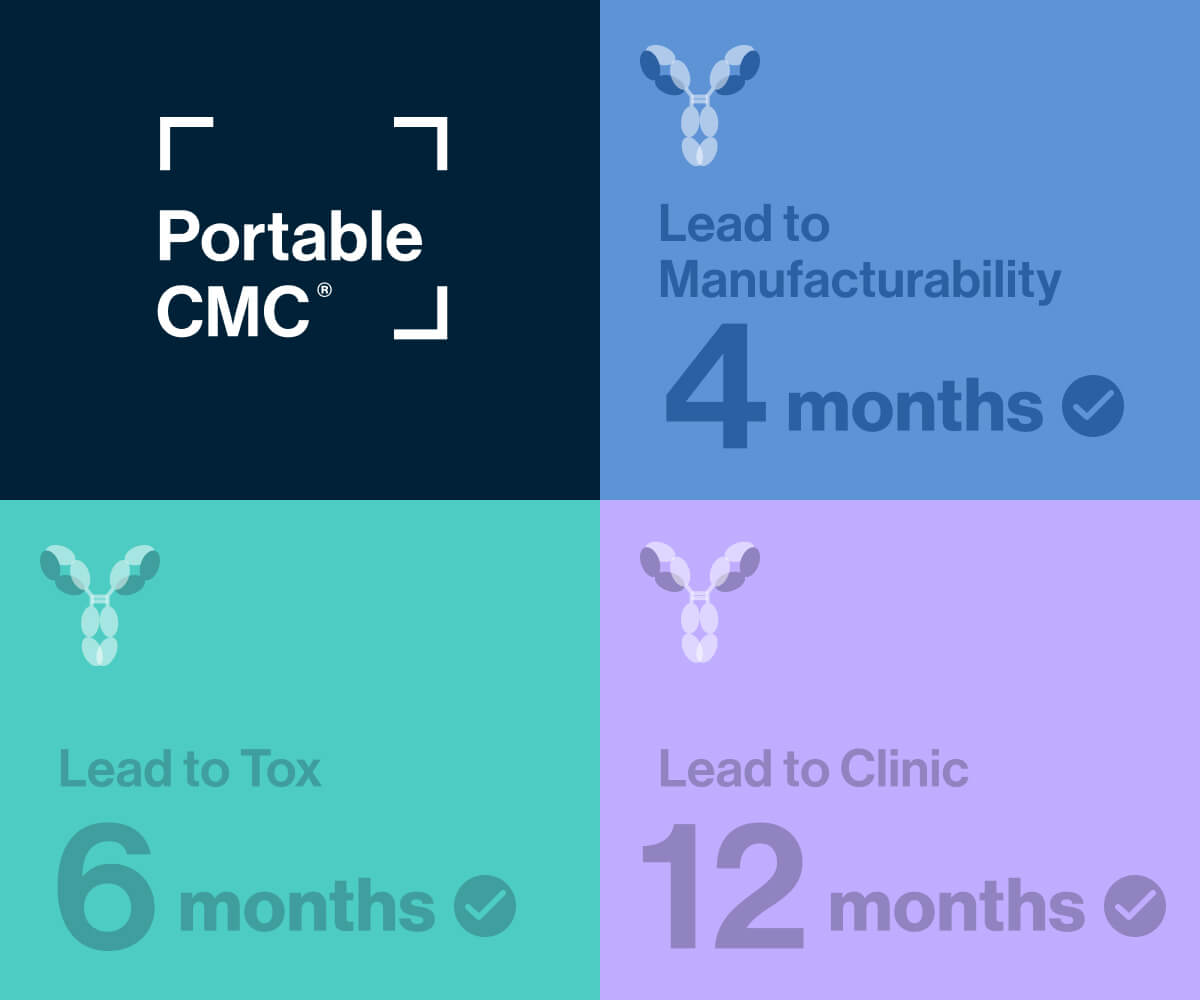Blogs
From Vector Design to Process Characterization: A Biotech Journey
March 2024
Introduction
In the dynamic world of biopharmaceuticals, navigating the complex journey from innovative drug discovery to market release poses multifaceted challenges, especially for cutting-edge antibody therapies. This journey is about scientific and technological innovation, overcoming stringent regulatory landscapes, mastering sophisticated production processes, and ensuring each step aligns with the highest safety and efficacy standards. This introduction explores the pathways and practices that set the stage for breakthroughs in antibody therapy CMC development and how Wheeler Bio facilitates this journey with unparalleled efficiency and dedication.
Beginning Well with Tailored Vector Design for Robust Protein Expression
Developing antibody therapies involves the precise design and manipulation of vectors, a cornerstone in the biotechnology behind innovative drug development. The journey begins with expression vector design, which includes codon optimization, signal peptide selection, and vector construction for genes encoding the desired antibody chains. Optimization of gene sequences tailors the vector for high performance in specific host cells.
A critical aspect of vector design involves the strategic incorporation of genetic regulatory elements. Including strong promoters, enhancers, and sequences that stabilize the genetic message ensures that the antibody genes are both present and robustly expressed. The choice of these elements is meticulously matched with the host cell’s biology to maximize production. Several factors weigh heavily on the design process. The strength and compatibility of the transcriptional elements with the host cell’s machinery are paramount, as they directly influence the level of gene expression. Codon optimization serves as a fine-tuning mechanism, enhancing the efficiency of translation to boost protein production.
Beyond technical considerations, safety and regulatory compliance are always at the forefront of vector design, ensuring that the vectors used do not pose harmful recombination or insertional mutagenesis risks. Lastly, a deep understanding of the host cell’s biology is indispensable, influencing everything from vector construction to the choice of regulatory elements, ensuring that the final product is not just produced but produced correctly, with the appropriate post-translational modifications.
By leveraging the expertise of an experienced CDMO such as Wheeler Bio, drug developers not only streamline the development process but also enhance the efficacy and safety of the resulting antibody therapies. This collaborative approach merges scientific acumen with practical experience, driving forward the development of life-saving treatments.

Streamlining Upstream Process Development
Drug developers and biotech companies constantly seek methods to streamline upstream process development driven by the need to improve yield and product quality, reduce costs, and speed up the journey from lab bench to market. At the heart of this endeavor lies a blend of cutting-edge technologies and strategic approaches that transform traditional workflows into agile, optimized operations.
High-throughput screening and automation have emerged as cornerstone technologies, enabling scientists to quickly identify high-yielding cell lines with unprecedented precision. By leveraging automation in these early stages, thousands of potential candidates can be evaluated simultaneously, dramatically accelerating the selection process.
Quality by Design (QbD) principles have been increasingly adopted during upstream process development to ensure consistent product quality. Through real-time monitoring and a deep understanding of process variability, developers can predict and control the quality attributes critical to therapeutic efficacy and safety.
Media screening and metabolic flux analysis offer insights into cell metabolism, guiding optimizations that increase productivity. Additionally, scale-down models and single-use bioreactors allow for more flexible and efficient scale-up strategies.
By integrating these advanced methodologies, developers are streamlining upstream process development and setting new standards for developing antibody therapies. This holistic approach ensures innovative treatments can reach patients faster without compromising quality or safety, marking a new era in biopharmaceutical development.
Complexities of Downstream Manufacturing and Purification
The inherent nature of antibodies can simplify downstream manufacturing and refinement in production. The platform downstream process can be developed by leveraging the affinity of antibodies to bind Protein A, followed by one or more steps to further polish and remove remaining impurities. Scaling these processes from bench to production while maintaining product quality attributes adds a layer of complexity, but careful control to maintain product quality and yields ensures antibodies remain effective and safe.
The regulatory landscape navigated by developers is no less daunting. Standards for purity and safety are understandably high, requiring the removal of even trace impurities. Moreover, the economics of biopharmaceutical downstream manufacturing, where purification often represents a significant cost, cannot be ignored. Optimizing the balance between quality and cost is a perpetual challenge.
Technology principles of QbD allow for a more nuanced control and design of the downstream manufacturing process. Advances in chromatography offer ways to enhance efficiency and yield. Embracing these tools and methodologies can steer developers through these complexities toward delivering safe, effective antibody therapies to those in need.
Analytical Support and Process Characterization
Discovery and Early Development
In the discovery and early development phases, analytical support not only aids in identifying promising therapeutic candidates but also ensures compliance with regulatory standards from the outset. Techniques like high-throughput screening and mass spectrometry are employed within a framework that meets regulatory expectations for early-stage product and process characterization. Documentation of these analytical methods and their qualification and ultimately validation are crucial, as regulatory bodies require evidence of a robust, scientifically sound approach to candidate selection and production. Early compliance sets the stage for smoother regulatory review processes later in the development lifecycle.
Process Characterization
For process characterization, analytical support ensures the manufacturing process is reproducible, scalable, and consistently produces high-quality products within a regulatory-compliant framework. As recommended by regulatory guidelines, ensuring the process adheres to QbD principles is integral to demonstrating control over critical quality attributes that impact product safety and efficacy.
Product Characterization and Validation
Comprehensive characterization of antibodies involves elucidating their structure-function relationships, essential for understanding the biologic’s therapeutic potential, meeting regulatory requirements, supporting the therapeutic mechanism of action, and justifying progression through clinical trials. Regulatory guidelines require thorough validation of these analytical support methods to ensure their reliability and reproducibility in consistently characterizing the product.
Quality Control and Lot Release
Quality control (QC) and lot release testing are critical phases where analytical support ensures that each batch of the antibody therapy meets predefined quality criteria. Regulatory compliance is deeply integrated into this phase, with each analytical test method rigorously validated and performed according to good manufacturing practices (GMP). Process characterization is another critical aspect of the QC landscape. Developing and adhering to strictly defined standard operating procedures requires an experienced and knowledgeable team to ensure that the drug’s manufacturing process results in the highest quality product possible and meets all safety and consistency standards required to progress to commercial manufacturing. The establishment of specifications for purity, identity, potency, and safety, as well as the adherence to these specifications, are closely scrutinized by regulatory agencies to ensure batch-to-batch consistency and overall product quality.
Stability Studies
Stability studies, vital for determining the product’s shelf life and storage conditions, are conducted under strict regulatory guidelines. Analytical support during these studies ensures that the methods used to assess stability are validated and capable of detecting changes in product quality over time. Regulatory bodies require comprehensive stability data as part of the marketing authorization application, necessitating detailed documentation of how the studies were designed, conducted, and interpreted in alignment with international regulatory standards.
Trends and Technologies Shaping the Future
In the rapidly evolving landscape of biopharmaceutical manufacturing, particularly for antibody therapies, a blend of innovative trends and technologies is setting the stage for a new era of efficiency, quality, and sustainability. Single-use technologies have revolutionized the industry by providing scalable and flexible solutions that significantly reduce cross-contamination risks and streamline production processes. Semi-targeted integration methods offered by transposon-based systems are redefining advanced cell line development. Unlike traditional gene-editing tools, these systems enable the semi-targeted insertion of genes into mammalian cell genomes, offering a balance of efficiency and safety crucial for producing therapeutic antibodies. This approach ensures stable gene expression and scalability, vital for the cost-effective manufacturing of biologics.
Complementing these physical and biological innovations, artificial intelligence and machine learning are playing pivotal roles in optimizing production parameters and predicting quality outcomes, thereby reducing risks and enhancing process control. Regulatory frameworks are adapting to these technological strides by emphasizing risk-based approaches and quality-by-design principles, facilitating smoother pathways to market.
Wheeler Bio is at the forefront of these industry innovations, revolutionizing the biologic drug development landscape and helping its clients navigate the challenges of bringing novel antibody therapies into the clinic described above by accelerating market entry and maintaining stringent safety and efficacy standards. This endeavor necessitates a strategic blend of rapid development timelines and comprehensive data collection to secure funding and support IND applications. As a forward-thinking CDMO within a venture studio, Wheeler Bio specializes in assisting small and emerging biotech firms to overcome the challenges from discovery to first-in-human (FIH) studies. This is facilitated by reducing development time and costs, leveraging the Portable CMC® platform, which embodies a data-driven, efficient, and scalable antibody CMC development and clinical manufacturing approach.
The Portable CMC® platform empowers innovators throughout the journey from discovery to CGMP production, offering an open-source, technology-integrated blueprint. It features three pivotal services: Lead to Manufacturability, Lead to Tox, and Lead to Clinic, focusing on fostering development with an emphasis on funding alignment, accessibility, affordability, flexibility, and expedited clinic entry.

At the core of Wheeler Bio’s operations is a robust approach to process development, underscored by deep expertise in process characterization and a comprehensive grasp of analytical methodologies. This approach ensures that each drug development phase is efficient and adheres to the highest quality standards, facilitating seamless progression from concept to clinic.
Wheeler Bio’s commitment to innovation is evident in its continuous adaptation to industry changes. By integrating cutting-edge digital solutions and automation, Wheeler Bio mitigates risks and enhances productivity and efficiency across its services. This includes cell line development and CGMP master cell banking, process development and optimization, analytical method development, formulation development, toxicology material supply, and CGMP drug substance production.
Located in Oklahoma City, Oklahoma, Wheeler Bio’s state-of-the-art facilities enable a quick transition from development to production. This is bolstered by collaborative teams that cover all facets of development and operations, setting new benchmarks in process economics and speed to market. Wheeler Bio’s proactive stance on innovation and adeptness in navigating industry shifts underscore its role as a pivotal player in the biotech sector, delivering cost-effective, efficient solutions for biologic drug development.